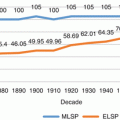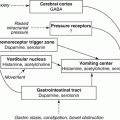© Springer International Publishing Switzerland 2017
Lawrence Berk (ed.)Dying and Death in Oncology10.1007/978-3-319-41861-2_1010. Oncologists and Death
(1)
Morsani School of Medicine, University of South Florida, Tampa, FL, USA
10.1 Introduction
AGAINST his will he dieth that hath not learned to die. Learn to die and thou shalt con1 to live, for there shall none con to live that hath not learned to die; and he shall be cleped2 a wretch that cannot live and dare not die.
If thou wilt live freely learn to die wilfully3; and if thou ask of me how many it learneth, I shall tell it thee anon.
Thou shalt understand that this life is not else but death; for death is a passing as every man knoweth well. Wherefore men say of a man when he dieth that he passeth;
I will admit that I am writing this chapter at the last minute. The original author of this chapter got his outline to me and some of the text, but despite very polite cajoling, he never finished the manuscript. On reviewing his outline, I realized that the information he wanted to present was very appropriate but also mundane. It is already well known that palliative medicine can improve medical care for the dying patient and at the same time save costs for the medical system. It is also known that palliative care and hospice care are underutilized and often introduced to patient care too late to make a significant difference. Therefore, I want to look at the dying patients from another point of view – that of the physician. What is it like for oncologists to have to face dying patients? How do they communicate? How do they handle the prolonged and almost inevitable progression to death of many patients? How does this affect these physicians? There is very little information in the literature on these questions, but I will review what I could find.
10.2 What Are the Attributes of a Good Oncologist?
Now Lord hast Thou forsaken me. Thy servant. Thou wouldest teach me wisdom enough, but I am almost brought to the death. O my God, how much bindeth me the presence of death that I have seen! Now the Image of Death hath so overlaid all my mind that unnethes4 wot I whether I have seen the Image of Death or not; for I am so greatly astonied that unnethes wot I whether this that I have seen be so in deed, or in likeness. (Comper 1917) p. 119
The best place to begin is the beginning, and the beginning of the process is training. What are the characteristics of a physician who chooses to be an oncologist? A PubMed search of various permutations of “oncologist” and “characteristics,” and similar words produced no relevant articles. However, one of the constant findings in the literature is that physicians who are having discussions of impending death with the patient and family need to have empathy. For example, in the oft-quoted article by Rabow and McPhee, giving the ABCDEs of telling families bad news, “D”is “Deal with patient and family reactions” and specifically “Listen actively, explore feelings, express empathy” (Rabow 1999). Empathy, as described by Burton, is the ability to share someone else’s perspectives and imagine oneself as the other person in that situation (Burton 2015). Empathy is the intellectual understanding of the other’s situation, and this understanding allows better care of the person. In contrast, pity is an emotional reaction, and sympathy is a feeling of concern for the other that does not necessarily require the intellectual understanding of the other’s situation. Sympathy and empathy can coexist or exist independently. One can have sympathy for a dead butterfly, but it would be difficult to have empathy. In Gelhaus’ series on the moral attitude of the physician, he first discussed empathy, in which he defines empathy as “the adequate understanding of the inner processes of the patient concerning his health-related issues” (Gelhaus 2012a). He finds that empathy is necessary as an intellectual component of moral health care, but not sufficient for defining moral health care. There should also be compassion, as discussed below. This call for empathy is a call for understanding the dying person’s situation, not for an emotional exchange with him. Similarly, feeling sympathy or pity does not help give insight into how to improve his situation. But, this leaves a problem – empathy is a term and not an object. Empathy only exists within a definition, and there is no universal definition. To measure temperature, one measures it in relation to a defined standard (e.g., a relative scale based on the freezing and melting of water). This measurement is only useful because of the universal agreement within the Celsius measurement system for this scale. What is empathy measured relative to? Only an arbitrary definition. For example, Hojat et al. developed “The Jefferson Scale of Physician Empathy” (Hojat et al. 2001). They reviewed the literature and chose 90 questions they thought reflected empathy. This was tested on a group of 55 physicians and narrowed down to 45 questions. This was then tested on 41 Internal Medicine residents and 193 third year medical students, and narrowed down to 20 items. This, despite the best intentions of the authors, is not a measurement of empathy but a definition of what Hojat and colleagues think empathy is. They then do a host of tests to show it has interreliability with other made up definitions and that it has good consistency when the same person is tested more than once. This then proves the scale’s “validity.” Actually, this proves no more than that it is precise, not accurate. Precision is the ability to do the same thing many times. Accuracy is doing it correctly. There is no test for accuracy, because you cannot say what the right answer is. So, rather than valid, the appropriate term for their testing is reproducibility. Using this to test physician empathy represents what Bridgman called “operationalism” (Bridgman 1927). Per the Stanford Encyclopedia of Philosophy “Operationalism is based on the intuition that we do not know the meaning of a concept unless we have a method of measurement for it” (Hasok 2009). Further, Bridgman stated (as quoted in (Hasok 2009)) “we mean by any concept nothing more than a set of operations; the concept is synonymous with the corresponding set of operations.” Although operationalism long ago fell out of favor as a philosophy, I find it is a fundamental problem in humanistic medical sciences in that measurements become confused with the abstract term with the same name. Thus, we say empathy as if it is something concrete, whereas the opposite is true; empathy only exists as an abstract term, and therefore what can be taught is only how to improve on the measurement. So, how do Hojat and colleagues define empathy? What do they think makes an empathetic physician? The items of the Jefferson Scale are as follows (Hojat et al. 2002a):
- 1.
I try to imagining myself in my patients’ shoes when providing care to them.
- 2.
My understanding of my patients’ feelings gives them a sense of validation that is therapeutic in its own right.
- 3.
An important component of the relationship with my patients is my understanding of the emotional status of themselves and their families.
- 4.
I try to understand what is going on in my patients’ minds by paying attention to their nonverbal cues and body language.
- 5.
I try to think like my patients in order to render better care.
- 6.
I believe that empathy is an important therapeutic factor in medical treatment.
- 7.
Empathy is a therapeutic skill without which my success as a healthcare provider would be limited.
- 8.
Patients’ illnesses can only be cured by medical treatment; therefore, affection ties to my patients cannot have a significant place in this endeavor.
- 9.
I do not allow myself to be touched by intense emotional relationships between my patients and their family members.
- 10.
I believe that emotion has no place in the treatment of medical illness.
- 11.
Because people are different, it is almost impossible for me to see things from my patients’ perspectives.
- 12.
Attentiveness to my patients’ personal experiences is irrelevant to treatment effectiveness.
- 13.
My patients feel better when I understand their feelings.
- 14.
I have a good sense of humor that I think contributes to a better clinical outcome.
- 15.
I consider understanding my patients’ body language as important as verbal communication in caregiver–patient relationships.
- 16.
I try not to pay attention to my patients’ emotions in interviewing and history-taking.
- 17.
I consider asking patients about what is happening in their lives as an unimportant factor in understanding their physical complaints.
- 18.
It is difficult for me to view things from my patients’ perspectives.
- 19.
I do not enjoy reading nonmedical literature and the arts.
- 20.
My understanding of how my patients and their families feel is an irrelevant factor in medical treatment.
Knowing the questions thus makes it easy to make a physician more empathetic, as measured by the scale. And the authors misinterpret their scale by analyzing the data to show that physicians in “people-oriented specialties” outscored those in “technology-oriented” specialties in empathy, especially in question 3 (Hojat et al. 2002b). It is probably true that a radiologist or a pathologist or probably even an anesthesiologist do not improve their performance by understanding the emotional status of their patients. That does not make them less empathetic. It makes their practice of medicine require less empathy (as defined by this scale). What is important to note is that this scale, as it reflects what empathy might mean, strongly emphasizes that it is an intellectual and not an emotional process. One has to understand the patient and the patient’s family, not grieve for them. An oncologist can be empathetic and yet maintain an emotional distance and professional objectivity.
Stay updated, free articles. Join our Telegram channel

Full access? Get Clinical Tree






